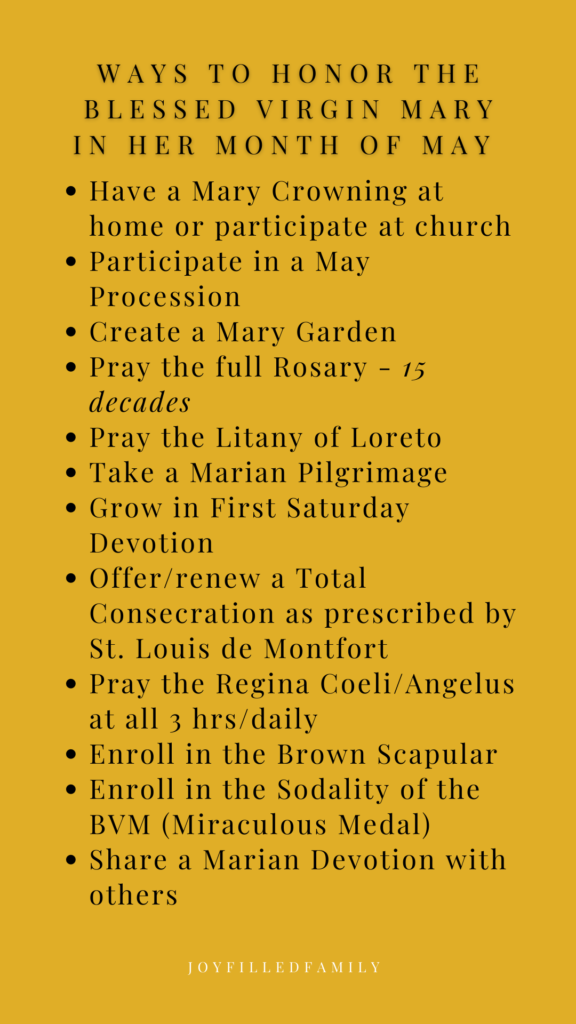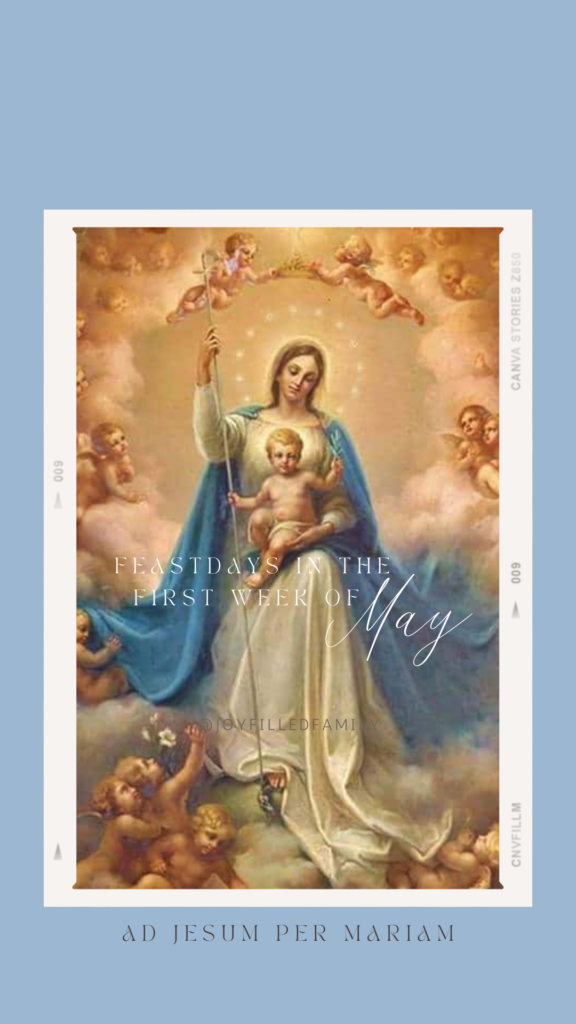Protected: Divine Intimacy: Meditations on the Interior Life for Everyday of the Year
Protected: Ignatian Discernment Method: Making a Decision
Saints for the First Week of May
Feastdays in the First Week of May
April 26 – SOLEMNITY OF ST. JOSEPH, Spouse of the BVM
May 1 – STS. PHILIP & JAMES, App
Within the Octave
May 2 – St. Athanasius, BpCD
Within the Octave
May 3 – FINDING OF THE HOLY CROSS
Octave Day of St. Joseph
May 4 – St. Monica, W
May 5 – St. Pius V, PC
May 6 – St. John, ApEv, before the Latin Gate
May 7 – St. Stanislaus, BpM
➕
In the ‘liturgical books of 1962’ the Solemnity of St. Joseph does not exist as it was suppressed in 1956 and replaced by ‘San Giuseppe Comunista’. The feast of the Finding of the Holy Cross was also struck from the 1962 calendar, kept as a IV class Paschaltide feria.

➕
Ways To Honor The Blessed Virgin Mary In Her Month Of May:
Have a Mary Crowning at home or participate at church
Participate in a May Procession
Create a Mary Garden
Pray the full Rosary – 15 decades
Pray the Litany of Loreto
Take a Marian Pilgrimage
Grow in First Saturday Devotion
Offer/renew a Total Consecration as prescribed by St. Louis de Montfort
Pray the Regina Coeli/Angelus at all 3 hrs/daily
Enroll in the Brown Scapular
Enroll in the Sodality of the BVM (Miraculous Medal)
Share a Marian Devotion with others

Protected: Homeschooling – My Thoughts
- « Previous Page
- 1
- …
- 18
- 19
- 20
- 21
- 22
- …
- 232
- Next Page »